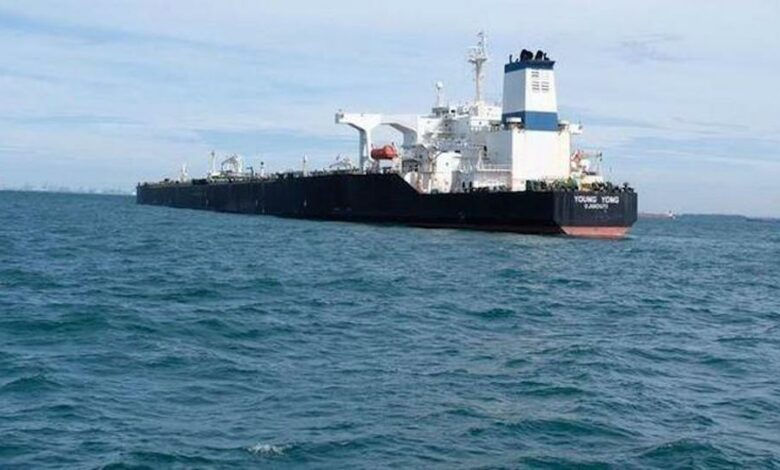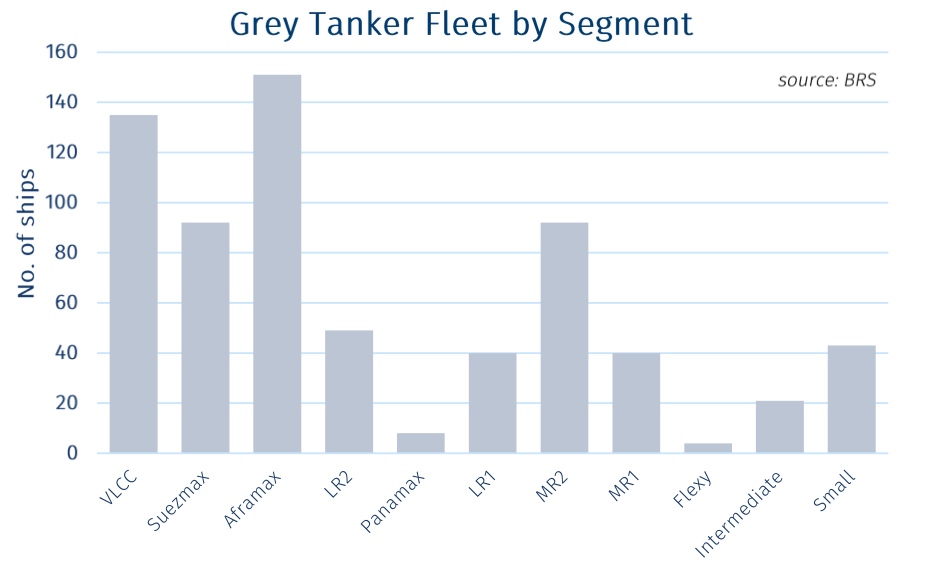
Luxembourg-headquartered broker BRS has warned the grey fleet is likely to become darker as more focused sanctions squeeze Russia’s export options.
The grey tanker fleet – ships hauling Venezuelan, Iranian, North Korean and Russian cargoes – has grown from around 400 ships to more than 700 units in the two years since Russia’s full-scale invasion of Ukraine, according to BRS data. While BRS calls this part of the tanker fleet grey, other terms used regularly are shadow, opaque or dark.
With stricter sanctions imposed by the US, UK and the European Union over the past week, BRS suggested in its latest weekly tanker report that the net appears to be closing on grey fleet tanker owners, especially if they are suspected of flouting the Russian oil price cap.
As a result, analysts at BRS are predicting more grey tankers will be pushed towards alternative shipping services.
“In time, this will only have negative consequences as these are unlikely to be as comprehensive or stringent as mainstream, western providers,” BRS predicted, adding: “In essence, it will see the grey tanker fleet become ‘darker’ and will probably see those companies which currently have ships engaged in both mainstream and Russian trade, decide to only specialise in one or the other.”
Stricter vessel sanctions could result in a scramble for available tonnage, BRS suggested, thereby “injecting further chaos into an already taut tanker market”.
“Whether Russia can continue to maintain its shadow fleet remains to be seen but it is not becoming easier,” pointed out a recent report from Arctic Securities.
Craig Kennedy, who authors the well-researched Navigating Russia substack, detailed last month how Moscow’s shadow fleet has been running into sanction headwinds.
The recent campaign by price cap coalition countries to step up pressure on intermediaries in the shadow oil trade appears to be having an effect, Kennedy argued.
“The campaign has included a series of public enforcement actions against a small sampling of market players—shipowners, ship brokers and oil traders. It has also, reportedly, involved private overtures to a range of other entities—foreign banks, flag registries, insurers and the like—urging them to show greater diligence in their price-cap compliance,” Kennedy wrote.
In the opening weeks of 2024, hard-pressed shadow tanker operators, struggling under stricter sanction regimes, have started to scrap ships.

